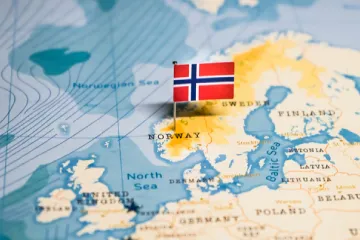 Maarten Haijer, Secretary General of the European Gaming and Betting Association (EGBA), has recently prompted Norway to relinquish the state monopoly model on gambling. The Brussels-based trade association represents the leading gambling operators offering licensed and regulated services across EU countries.
Maarten Haijer, Secretary General of the European Gaming and Betting Association (EGBA), has recently prompted Norway to relinquish the state monopoly model on gambling. The Brussels-based trade association represents the leading gambling operators offering licensed and regulated services across EU countries.
Norway is among the few European countries that still maintain a firm stance on state-controlled gambling. The abandoning of government-led monopolies in favor of the introduction of licensing systems in other EU countries is already a fact. Finland is expected to finally transition from a gambling monopoly to a licensing system. Although the process is in its early stages, it will be implemented by the beginning of 2025. This leaves Norway as the sole EU country that insists on preserving the monopoly model.
EGBA’s chief officer further accentuated the misconception that state-run monopoly models ensure a safer gambling environment for players. This is the exact opposite of what countries with an open licensing system have already demonstrated.
Haijer also commented that Norway’s government needed to address the country’s growing demand for an open and properly regulated gambling sector and act appropriately to implement it.
The Setbacks of a State-run Gambling Sector
Under the current circumstances, players based in Norway are urged to seek competitive gambling services from unlicensed offshore operators. They are able to offer them a greater diversity of gaming products and betting markets that are currently not legally accessible. This essentially robs the state budget of gambling revenue taxes that would otherwise be utilized for other sectors.
Despite the general trend across EU countries toward an open licensing model, Norway seems reluctant to let go of the monopoly. In a statement released by the Lottstift – Norway’s Gambling Regulatory Body, four leading betting groups have discontinued their operations within the country.
Ultimately, the liberalization of the gambling industry in Norway would bring about not only an increase in tax revenue but it would also improve safe gambling practices that all operators would be obliged to abide by.
As Maarten Haijer further commented, the Norwegian government should reconsider its approach to the model in view of the contemporary digital age and prioritize player safety and greater diversity of the gambling products on offer.
That said, in the year to follow, the Norwegian Gambling Authority may be empowered to block unlicensed offshore operators, further promoting the retention of a state-controlled gambling sector in the country.
As per the monopoly system currently established within the country, there are only two government-owned operators that are allowed to offer gambling services in Norway.
The first one is Norsk Tipping, which offers a range of instant games, sports betting, and lottery products. The second one is Norsk Rikstoto, which holds the monopoly over parimutuel betting on animal racing.